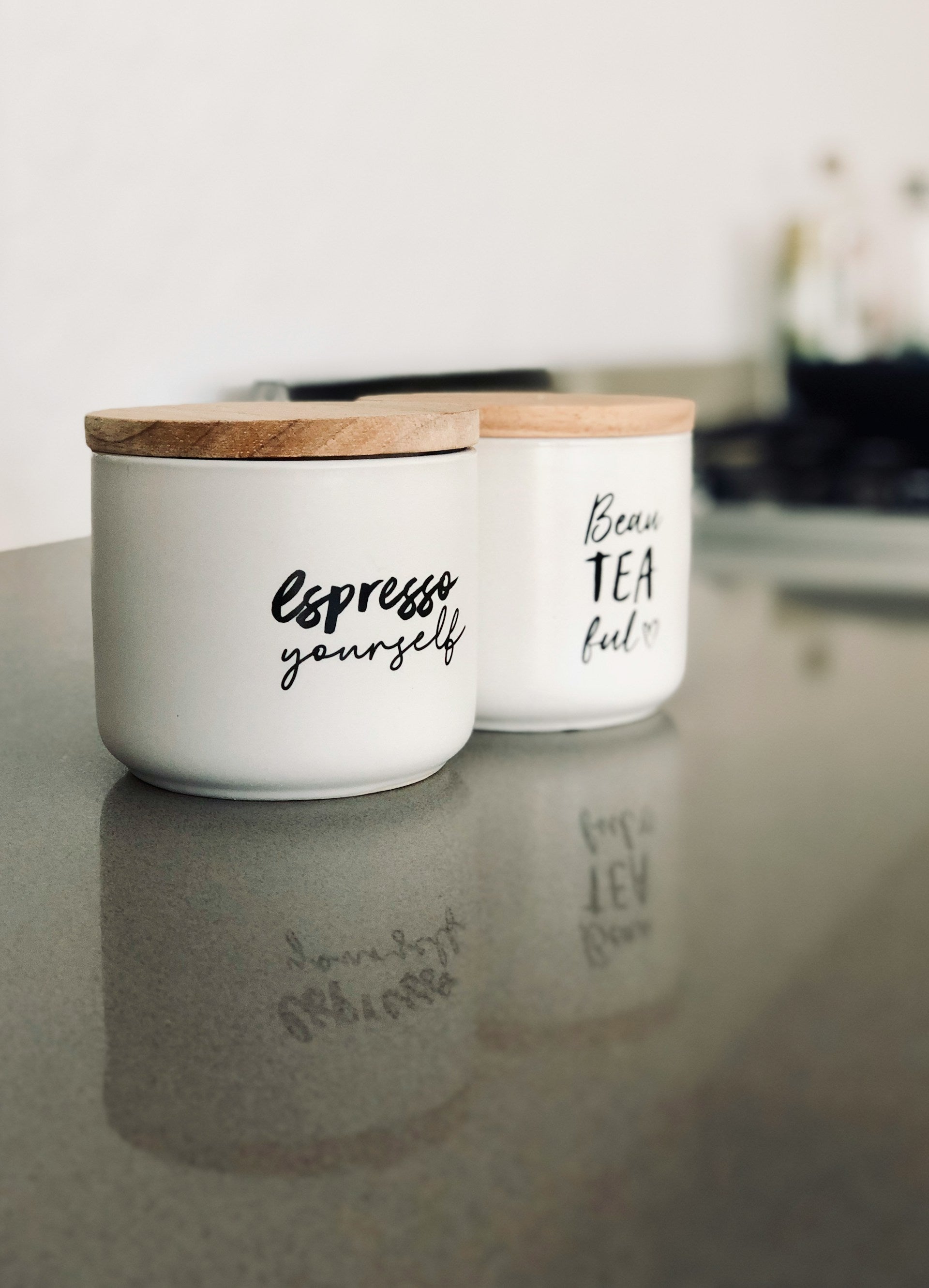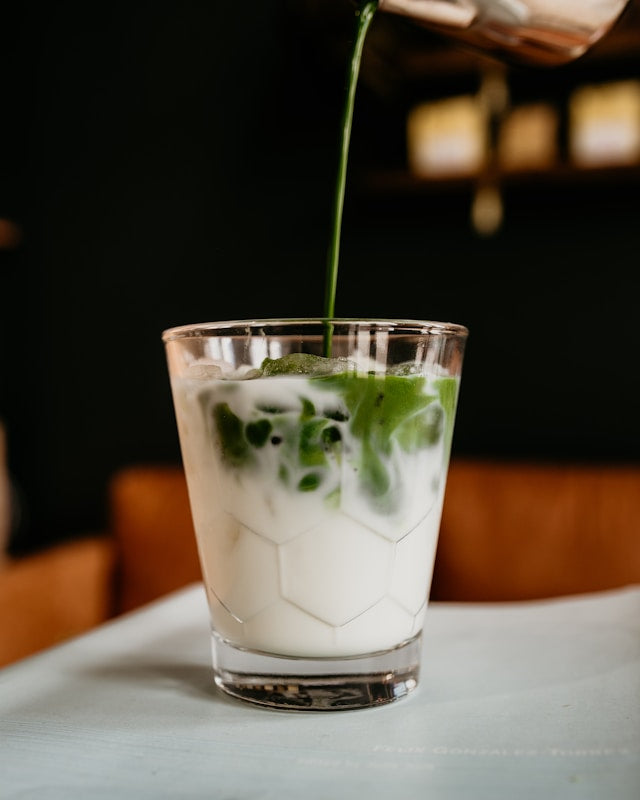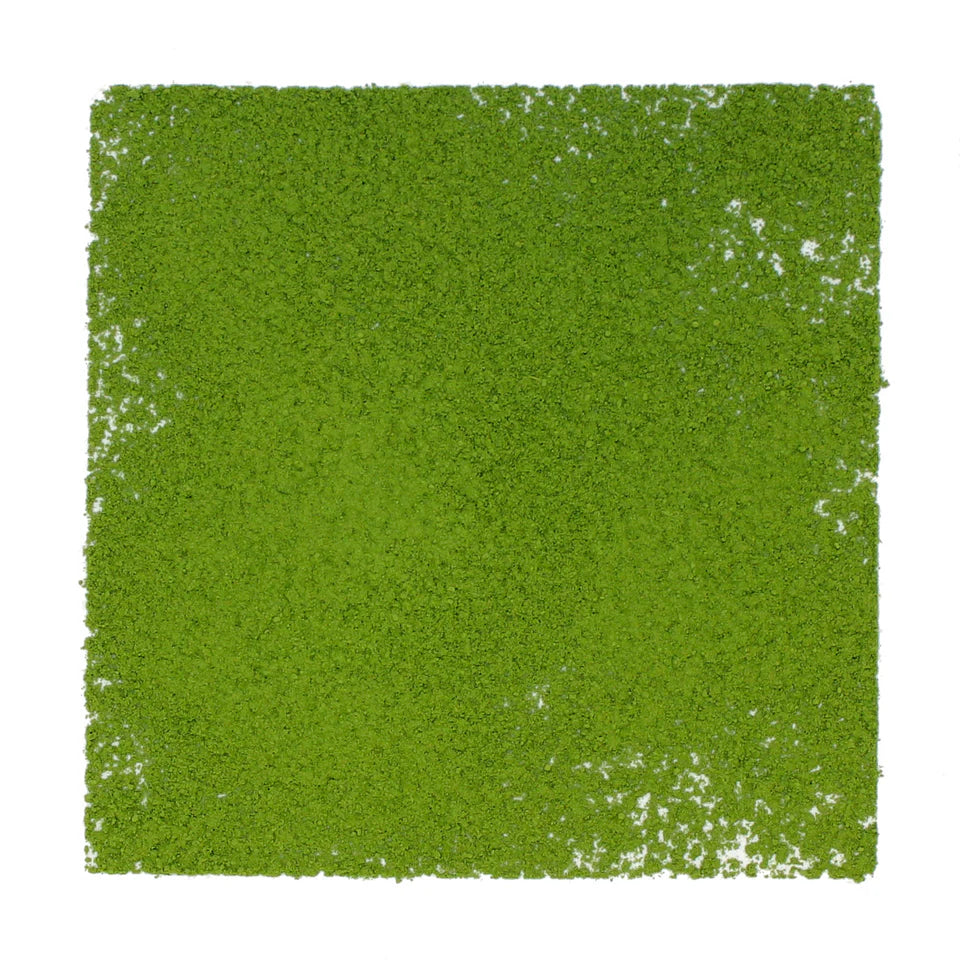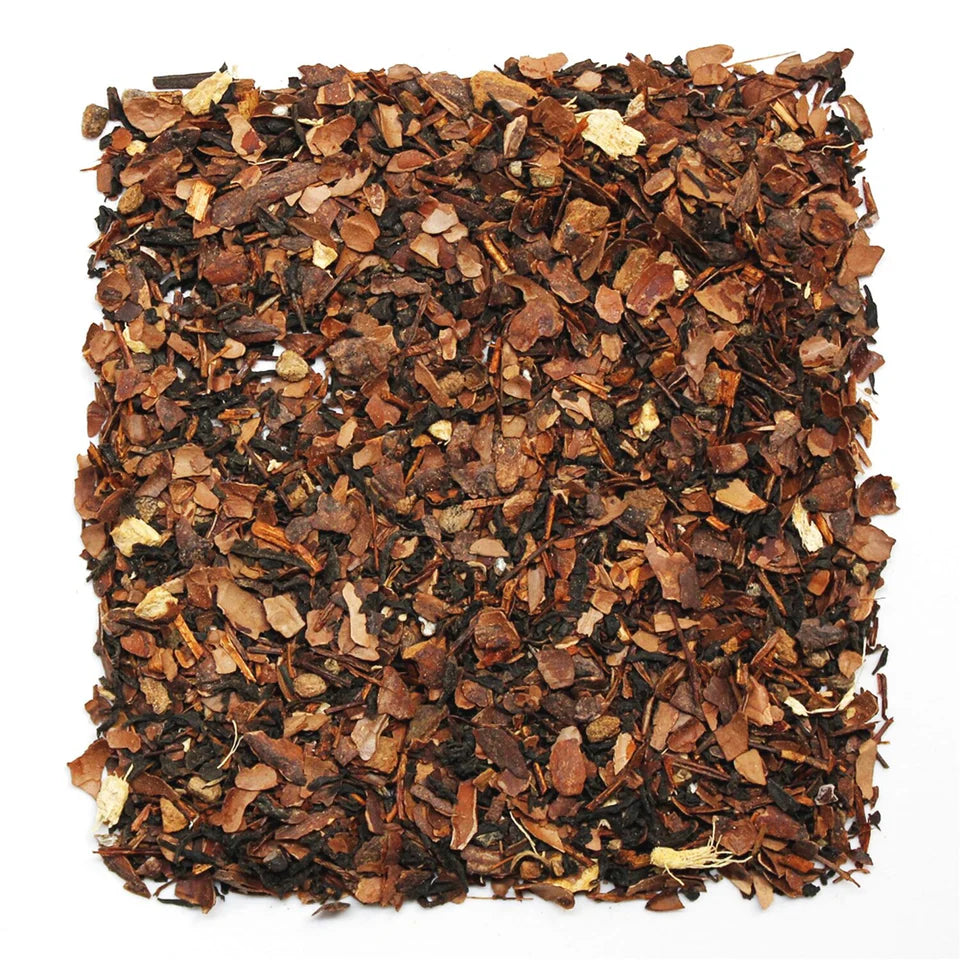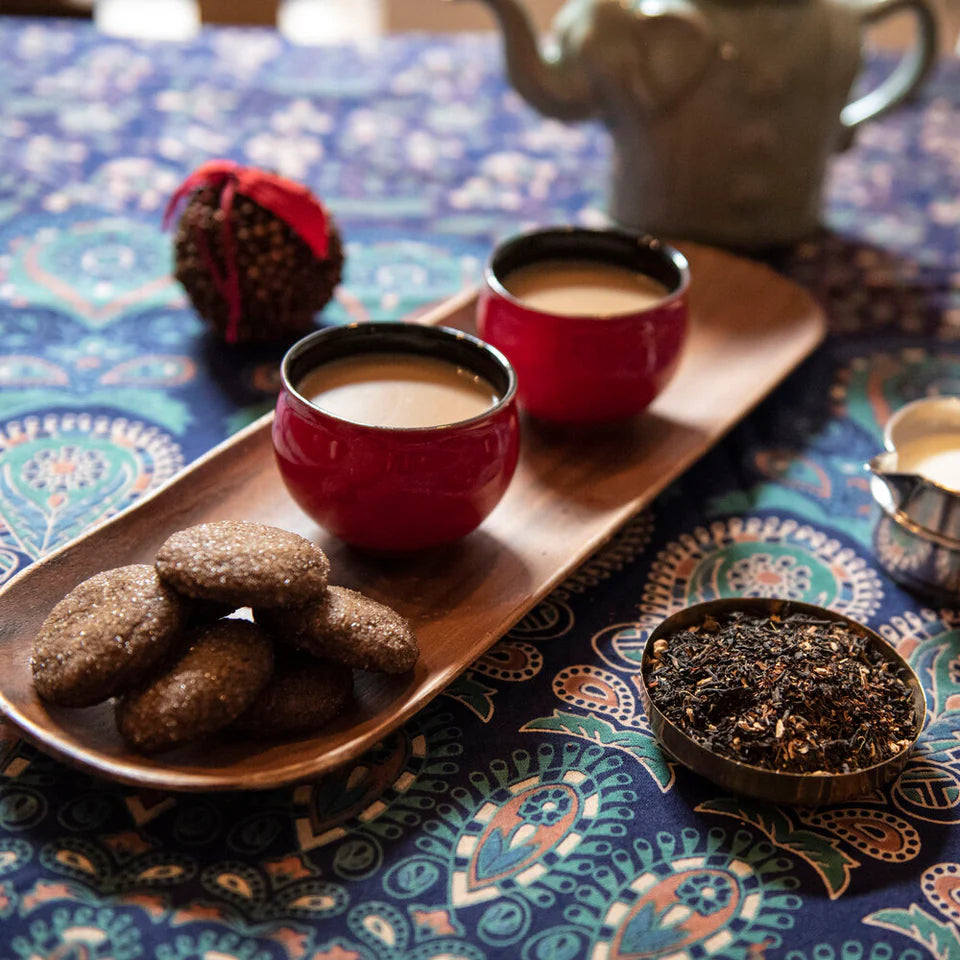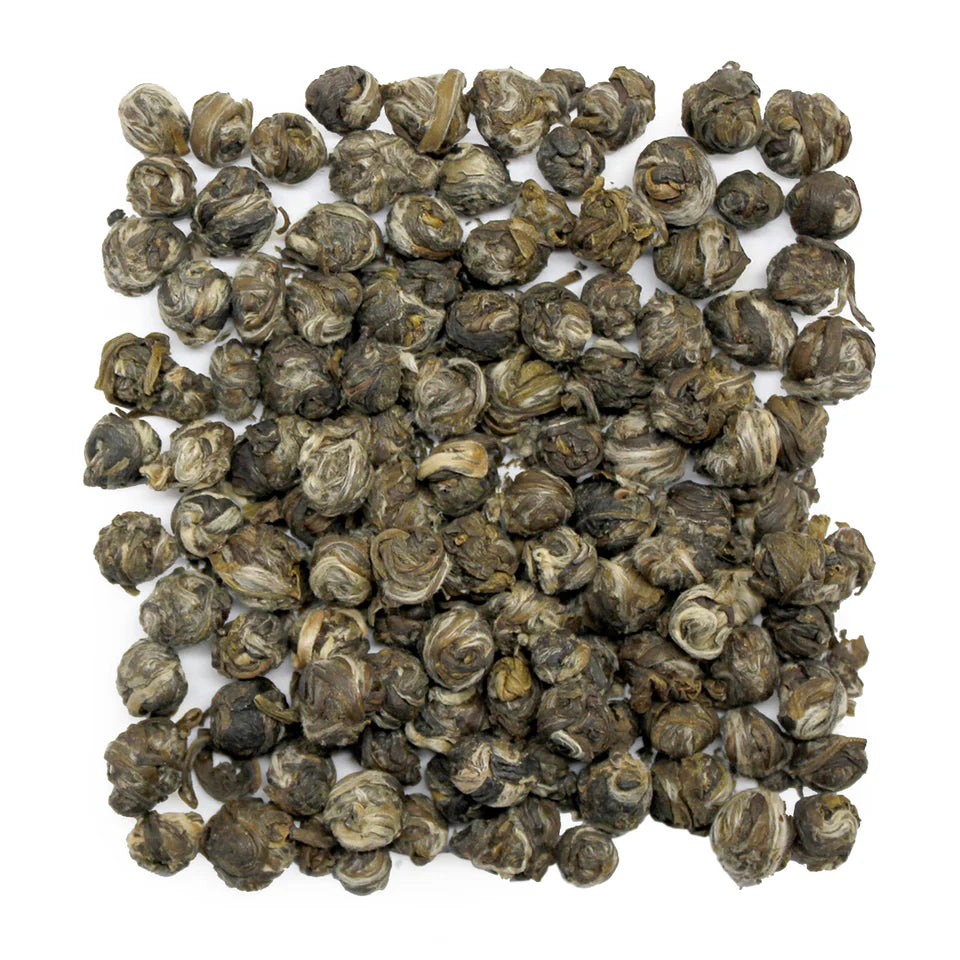Tea vs. Coffee
The Great Caffeine Debate.
In a bustling café in Seattle, barista James Chen executes a perfect rosetta on a latte with practiced precision, the rich aroma of freshly ground beans filling the air. Meanwhile, in a serene tea house in Kyoto, tea master Miko Tanaka performs a centuries-old ceremony, each deliberate movement honoring traditions that predate Columbus's voyage to the Americas. These contrasting scenes represent the world's two most beloved caffeinated beverages—coffee and tea—each with devoted followers who would argue passionately for their drink's superiority.
Americans consume over 400 million cups of coffee daily, while globally, tea remains the second most consumed beverage after water. As wellness culture and interest in the provenance of what we consume continue to rise, the question emerges: which is "better"—tea or coffee? The answer, as with most meaningful comparisons, depends entirely on what metrics we use to define "better" and how individual biochemistry, cultural backgrounds, and personal preferences influence our experience.
The Biochemistry Battle: How Each Affects Your Body
"Coffee and tea both contain caffeine, but they interact with our bodies in fundamentally different ways," explains Dr. Amelia Rodriguez, neurochemist at Stanford University. "Coffee delivers a more immediate stimulant effect, while tea often provides a gentler, more sustained energy curve."
This difference stems from tea's unique composition. While a typical cup of coffee contains 95-200mg of caffeine compared to tea's more modest 15-70mg, tea contains L-theanine, an amino acid that moderates caffeine's effects. Research published in the Journal of Nutritional Neuroscience demonstrates that this combination promotes alpha brain wave activity—associated with alert relaxation rather than jittery stimulation.
"Think of coffee as flooring the accelerator while tea gently increases your speed," suggests Dr. Michael Chang, who researches psychoactive compounds at Johns Hopkins University. "Both get you moving, but the experience is quite different."
The body metabolizes these beverages differently as well. Coffee's acidic nature can trigger digestive discomfort in sensitive individuals, while tea's tannins occasionally cause nausea when consumed on an empty stomach. Coffee accelerates peristalsis—the contractions that move food through your digestive system—explaining its reputation as a morning bathroom ritual facilitator.
For those sensitive to caffeine's effects on sleep, the distinction matters significantly. Research from the Sleep Research Society found that consuming caffeine even six hours before bedtime disrupted sleep quality, with coffee's higher caffeine content potentially causing more pronounced effects.
Shop Noteworthy Tea Selections
The Health Proposition: Preventative Benefits and Risks
Both beverages boast impressive health credentials when consumed in moderation, though they shine in different areas.
"Coffee has received a dramatic reputation rehabilitation in recent years," notes epidemiologist Dr. Sarah Williams of Harvard's School of Public Health. "Long-term studies consistently show associations between regular coffee consumption and reduced risk of Parkinson's disease, type 2 diabetes, certain cancers, and even overall mortality."
Coffee contains over 1,000 bioactive compounds, including chlorogenic acids with antioxidant properties. A meta-analysis published in the British Medical Journal examining data from 31 studies found that drinking three to four cups daily correlated with a 17% reduced risk of all-cause mortality compared to non-coffee drinkers.
Tea—particularly green tea—has its own impressive research portfolio. Its rich polyphenol content, especially catechins like EGCG (epigallocatechin gallate), has been linked to improved cardiovascular health, potential cancer prevention, and enhanced brain function.
"Tea's flavonoids appear particularly beneficial for arterial health," explains cardiologist Dr. Robert Chen. "Regular consumption is associated with reduced inflammation and improved endothelial function—how well your blood vessels dilate and contract."
A 2020 study in the European Journal of Preventive Cardiology analyzing data from over 100,000 participants found that habitual tea drinkers had an 8-10% lower risk of heart disease and stroke compared to non-drinkers, with benefits increasing with consistent consumption over years.
Neither beverage wins outright in the health category. "The healthiest choice ultimately depends on your personal health profile," suggests nutritional psychiatrist Dr. Uma Naidoo of Massachusetts General Hospital. "Someone with anxiety might benefit from tea's L-theanine, while someone at high risk for Parkinson's disease might see more protective benefit from coffee."
Both drinks present potential downsides—coffee can increase blood pressure temporarily and exacerbate anxiety in susceptible individuals, while some teas inhibit iron absorption when consumed with meals. Moderation remains key for both beverages.
Sustainability and Ethics: The Global Impact of Your Morning Cup
When environmental and ethical considerations enter the equation, the comparison becomes even more complex.
Coffee cultivation has faced serious sustainability challenges. Traditional shade-grown coffee—grown under forest canopy—supports biodiversity but produces lower yields. Sun-cultivated varieties produce more beans but often lead to deforestation and require significant chemical inputs. Water usage presents another concern, with conventional processing methods requiring approximately 140 liters of water per cup of coffee.
"The highest environmental cost in coffee isn't production—it's what happens at the consumer level," explains environmental scientist Dr. Elena Martinez. "Single-use cups, capsules, and inefficient brewing methods dramatically increase coffee's footprint."
Tea's environmental profile varies similarly based on production methods. While tea plants can grow into trees that sequester carbon for decades, intensive monoculture tea plantations often employ pesticides that threaten local ecosystems. Processing methods matter too—traditionally withered and oxidized black teas require more energy than minimally processed green teas.
Labor practices add another layer to consider. Both industries have checkered histories regarding worker compensation and conditions. "The specialty coffee movement has made strides in direct trade relationships that better compensate farmers," notes agricultural economist Dr. Kwame Nkrumah. "Similar efforts exist in tea, though the plantation model prevalent in major producing regions creates different challenges than coffee's smallholder farmer structure."
For consumers prioritizing sustainability, neither option wins outright—both require thoughtful purchasing decisions focused on certification programs that verify ethical and environmental claims.
Cultural Significance: Rituals and Traditions
Perhaps nowhere is the comparison more subjective than in examining the cultural roles these beverages play worldwide.
"Coffee and tea aren't just drinks—they're social institutions," explains food anthropologist Dr. Maya Goldstein. "Coffee culture in places like Italy, Ethiopia, or Brazil differs dramatically from tea traditions in China, Japan, or England, but all serve similar social functions."
Coffee rituals often emphasize conviviality and conversation. The Italian espresso bar, the Ethiopian coffee ceremony, and the American "coffee date" all use the beverage as catalyst for connection. Coffee's association with productivity and work emerged strongly during the Industrial Revolution, when its stimulating effects helped workers adapt to rigid time schedules.
Tea ceremonies, particularly in East Asia, traditionally emphasize mindfulness and aesthetic appreciation. "The Japanese tea ceremony teaches that every encounter is a once-in-a-lifetime moment to be treasured," explains tea master Hiroshi Watanabe. "This 'ichigo ichie' philosophy transforms a simple act into a profound meditation on impermanence."
In Britain, afternoon tea evolved as a social ritual for the upper classes before becoming democratized across society. In Morocco, mint tea serves as a gesture of hospitality, while in Russia, the samovar became the hearth around which family life centered.
Neither beverage can claim cultural superiority—both have inspired rich traditions that provide meaning and connection across diverse societies.
The Sensory Experience: Flavor Complexity and Variety
For many enthusiasts, the ultimate comparison comes down to taste—an inherently subjective measure.
Coffee offers approximately 800 aromatic compounds (more than wine), creating a spectrum from bright, fruity light roasts to chocolatey, caramelized dark roasts. Regional distinctions create further variation: Ethiopian beans often present berry and floral notes, while Indonesian varieties tend toward earthy, spicy characteristics.
Tea's diversity impresses equally. True tea (from the Camellia sinensis plant) branches into six main categories—white, yellow, green, oolong, black, and post-fermented—each with countless regional variations. Factor in herbal infusions (technically tisanes rather than true tea), and the variety becomes almost limitless.
"What makes both beverages so compelling is how they express terroir—the unique environmental factors of where they're grown," explains sensory scientist Dr. Alexandra Chen. "Both capture something essential about their birthplace in every cup."
The ritual of preparation adds another dimension to the sensory experience. "The anticipation created by coffee's brewing aromas or the meditative quality of watching tea leaves unfurl shapes how we perceive flavor," notes neurogastronomist Dr. Carlos Mendez. "Our brains literally taste differently when engaged in meaningful ritual."

Personal Compatibility: Finding Your Match
Science increasingly suggests that genetic factors influence our preference for and response to both beverages.
"Some people metabolize caffeine quickly, while others process it slowly due to variations in the CYP1A2 gene," explains nutritional geneticist Dr. Rachel Kim. "Slow metabolizers often find tea's lower caffeine content more compatible with their physiology."
Taste sensitivity plays a role too. People with higher concentrations of certain taste receptors—"supertasters"—may find coffee's bitterness overwhelming or tea's astringency unpleasant. Cultural exposure during formative years often shapes preferences that persist throughout life.
"The idea that there's one objectively superior choice between coffee and tea misses the point," suggests culinary historian Dr. Jonathan Harrison. "These beverages have endured for centuries precisely because they offer different experiences that appeal to different people in different contexts."
The Verdict: A False Dichotomy
After examining health impacts, environmental considerations, cultural significance, sensory experiences, and personal compatibility, a clear conclusion emerges: framing tea and coffee as competitors requiring us to crown a winner creates a false dichotomy.
"The either/or mentality reflects our culture's tendency toward tribalism even in our consumer choices," observes consumer psychologist Dr. Leila Patel. "Most cultures traditionally consuming either beverage never saw them as mutually exclusive options requiring allegiance to one over the other."
The more nuanced approach recognizes that each beverage offers distinct benefits suited to different moments, needs, and individuals. A morning coffee might provide the alertness needed to begin a workday, while an evening chamomile tea signals to body and mind that it's time to relax. A ceremonial matcha might center you before meditation, while a cappuccino shared with friends facilitates social connection.
"The better question isn't which is superior," suggests integrative medicine specialist Dr. Andrew Weil, "but rather which is better for you, at this moment, for your specific purposes."
In our hyper-optimized culture constantly seeking "best" options, perhaps the most refreshing approach is embracing both these ancient beverages for exactly what they are: complex agricultural products that have shaped civilization, inspired ritual, and provided pleasure for centuries—each perfect in its own way.

